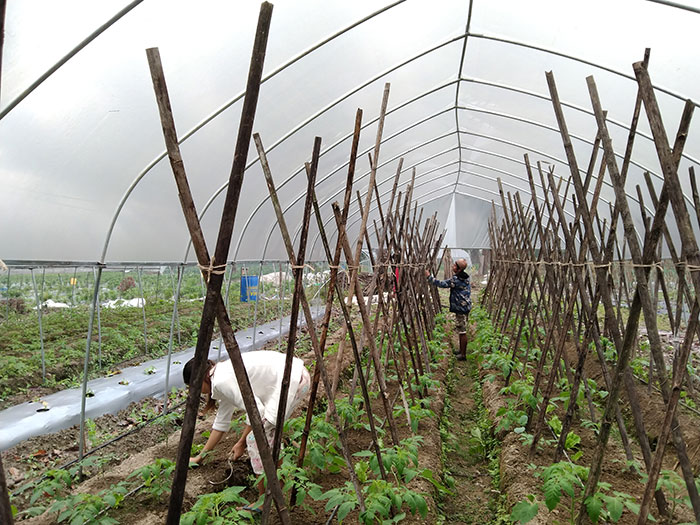Nima | Gelephu
Farmer Deepak Chhetri of Samtenling, Gelephu, is a recipient of the government’s economic contingency plan budget for winter vegetable production.
Along with the budget, the farmer, who has been leasing private land to grow commercial and organic vegetables for the last seven years, was allotted five acres of government land in March last year.
He invested more than Nu 700,000 to construct nine greenhouses and set up drip irrigation technology to enhance production, and other infrastructures to produce organic pesticides.
Deepak Chhetri was, however, stopped from working many times, claiming the government land he was allotted did not have clearance from the Department of Forest, which issued notifications to allow farmers to cultivate on private fallow lands and not on government land.
“I am not sure if I would be allowed to continue next season,” he said. “If I lose this plot I have to stop farming.”
He said the returns of his investment on the plot was not even half. “I was asked to work sometimes and on other times they stopped me.”
Deepak Chhetri said different officials brought different notifications and directives.
The farmer was the one who supplied chilli seedlings to the farmers in Sarpang this season.
He is not alone.
A class 12 drop out from Dekiling, Man Kumar Rai, is another farmer who was allotted government land.
He said it would be difficult to recover the investment he made on the leased land if it was only for one year. “Nothing is clear for now but if they stop us like this, it will discourage the farmers like me.”
He said he took up commercial farming with the support from the dzongkhag administration and the agriculture sector last year amid the pandemic.
The government initiated an economic contingency plan to revive economic activities affected by the pandemic and allotted more than Nu 40 million (M) to the seven southern dzongkhags for winter vegetable production.
Sarpang received the highest share of the agriculture ECP budget of Nu 21 million to enhance vegetable production and to supply vegetables to northern dzongkhags in winter.
With more than 100 people, groups, and individuals approaching the Sarpang dzongkhag agriculture sector, requesting to lease government land to start commercial farming, over 52 acres of government land are under cultivation today.
According to Samtenling gewog adminstration, three farmers from Samtenling gewog were allotted 15 acres of government land to produce winter vegetables on a large-scale.
Samtenling gup Kumar Mongar said the gewog administration was asked to allot plots, as there were chances of vegetable crisis in northern dzongkhags during the pandemic.
He said that after allotting the plots, they were told that there was no clearance from Forest Department. “The agriculture ministry issued notification asking us to allow people to use fallow private lands.”
According to the gup, allotting private fallow lands to interested farmers would be difficult, as private fallow lands are dispersed and scattered. “The risk of wildlife damage is more and many are without water and irrigation facilities.”
Dzongkhag agriculture officials said farmers were encouraged to take up commercial farming in the wake of the Covid-19 pandemic. “We couldn’t formalize the lease. There was no clearance from the forestry department.”
The issue was also discussed last year during two day Dzongkhag tshogdu after the LG officials from Sarpang raised the concern, as most farmers have started working and producing vegetables.
However, the DT resolved to solve the issue as per the Land Act of Bhutan.
Meanwhile, Deepak Chhetri said he worked hard from 6am till 11pm in the night on the leased land and with uncertain future, he wished he did not pin so much hope on it. “I encouraged my son to pursue higher studies in organic farming but with problems like this at the ground, we will not be able to put our passion into practise.”


